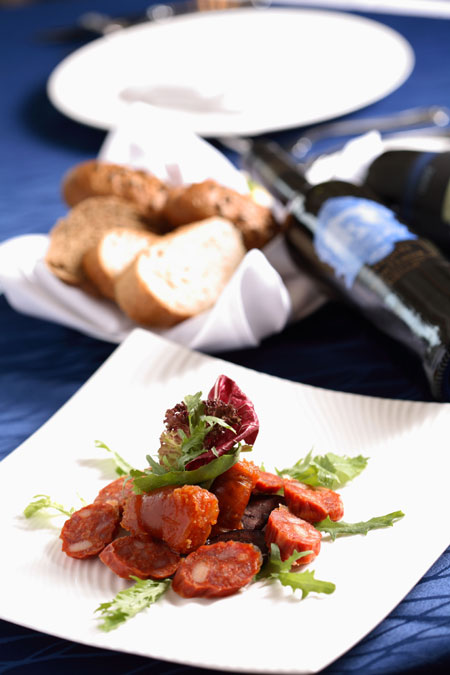Lisbon on a plate
 |
|
Portuguese sausages are among the signature treats of Portugal. [Photo provided to China Daily] |
Dining experience
Camoes restaurant is named after one of the country's greatest poets in history, with decoration and furnishings that showcase European elegance and luxury. His kitchen is stocked with ingredients imported from Portugal.
I visited the restaurant with a colleague, and all dishes we had were impressive. My favorite was salted codfish with salad.
Dried and salted codfish has been a traditional ingredient in the seafaring country's cuisine for hundreds of years. Sailors long ago learned to preserve fish by drying them after salting, the chef says.
He poaches and shreds the codfish first, then shapes the flesh into oval meatballs with parsley, garlic, mashed potatoes and other ingredients, before frying them. The tasty meatballs were golden and crispy on the outside, and white with dots of green spots inside.
I also liked the dish "small ham" very much, which was served simply with olive oil and breadsticks. The ham slices were razor-thin, just 1 millimeter, and were simultaneously soft and chewy.
Other hams often have a strong smoky flavor, but I didn't sense any smokiness until I was about to put the ham into my mouth.
According to Quaresma, the ham is made from free-range, organic pigs, which eat only acorns and flowers to give the pork a special flavor. The pork is salted to reduce water, and then air-dried for at least 14 months, often absorbing the scent of soft smoke. The longer the ham is dried, the drier and chewier it will be. Smoke from different types of firewood also gives the ham different flavors.
















